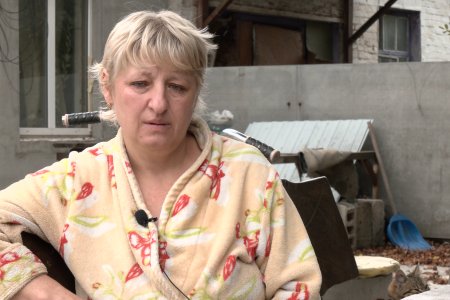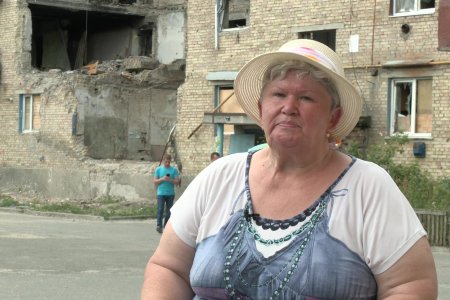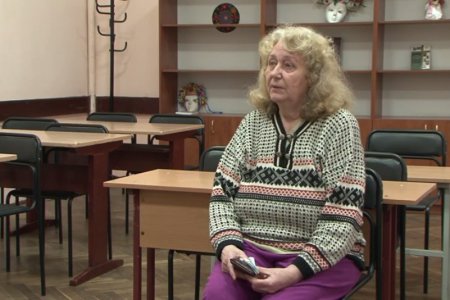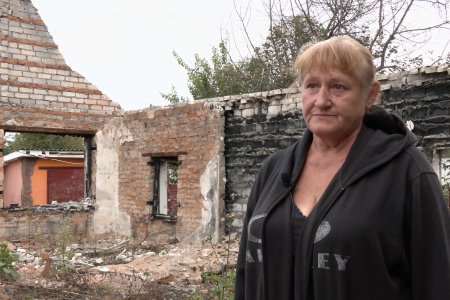My name is Anton. I work as an auto mechanic, repairing tractors. I married in 2015 and lived here in an apartment with my wife. We returned here for the first time on 6 April because we evacuated to the Ternopil region.
I couldn’t imagine what it would be like! Although I am from the Luhansk region, I moved here with my company in 2015. I couldn’t imagine that there would be so many victims and he [Putin] would attack us. My wife woke me up at seven because I usually get up late for work. She said: “Wake up, the war has begun!” I didn’t believe it — what war? Then we turned on the TV and watched — yes, war. I went to work in Boiarka and picked up my tools. I thought if anything happens, the main events will be in Kyiv. Makariv is on the sidelines. We have a private garage, and I hid everything there: all the tools because they cost money. And that’s it, I came home. It took me a long time to get there; I also stopped at a gas station and arrived almost in the evening because of the enormous traffic jams.
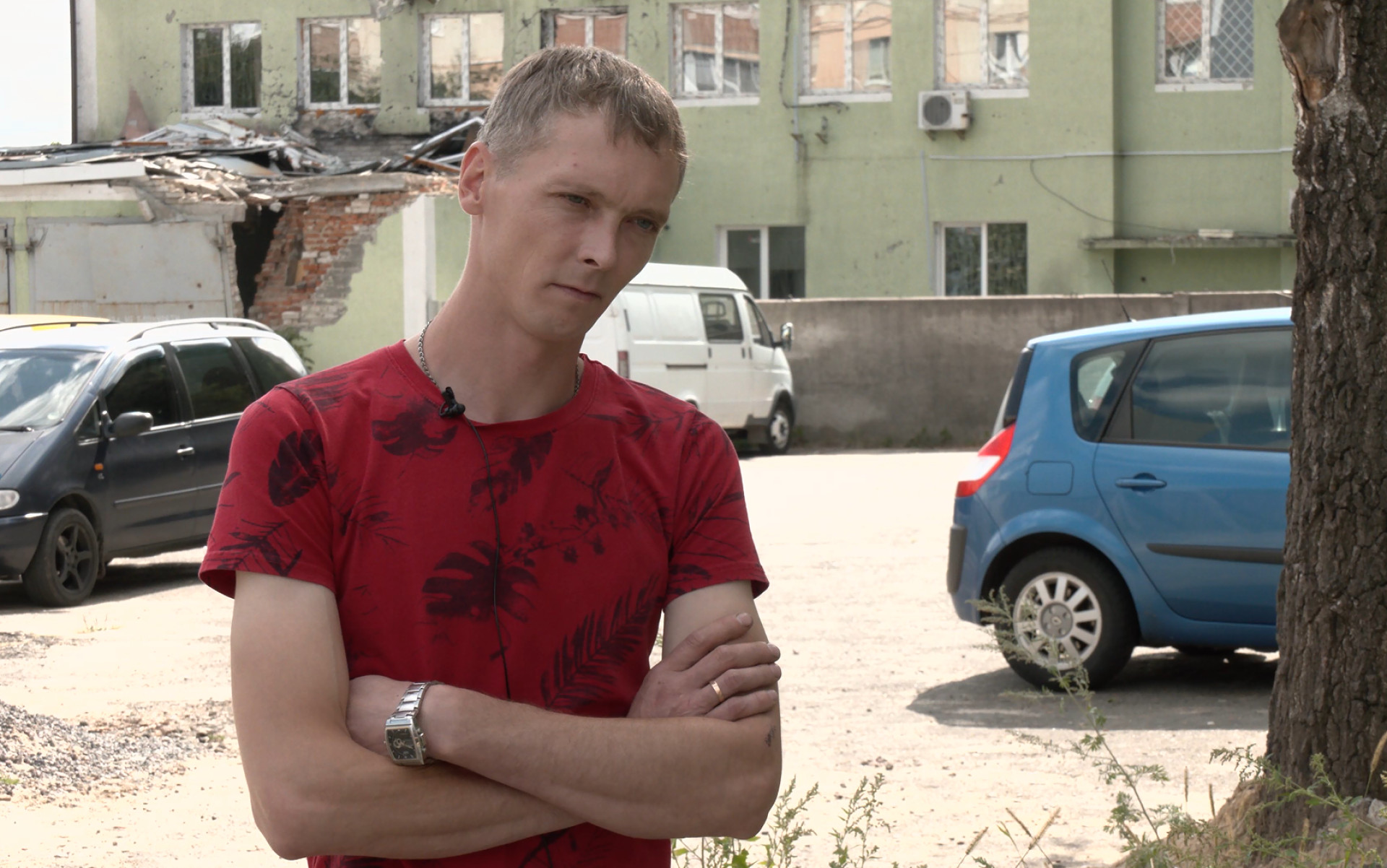
I arrived, and my wife said: “Let’s go to the basement; we’ll choose a place for ourselves.” We had a basement, and everyone had a room where they stored preserved food. Somehow, I still didn’t believe that we would be bombed. I said: “Maybe it’s not necessary? Well, okay, let’s go.” I don’t remember what date, 26 or 27, we started going down to the basement because the explosions were getting closer and closer. There was a roar for four days — a continuous hum. The equipment probably came from Belarus, or I don’t even know from where. Well, it began...
We evacuated on 6 March. We were all on duty here: during the day, we went out to get water to that house where there was a well. Because there was no communication, I looked to see if anyone was there. Our soldiers were stationed there. They knew who would fetch water, so they allowed them to go. We helped them and brought warm clothes. At the beginning of the war, the guys had nothing. And then there was a lull. We went out to get some fresh air, and a guy from the Territorial Defense came up and said: “You go to the House of Culture; there is an evacuation.” I wanted to run there myself, but my wife was a fighter; she got ready, and the three of us ran: there were also people from the neighboring apartment, which was no longer there.
We ran there, and they told us that, yes, evacuation. We were returning from the center, and they had already begun covering us with Grads [self-propelled rockets]. We sat down, waited, and ran back. Fortunately, we had two cars fueled. We grabbed everything we could, took all the neighbors, and went to the center to wait for evacuation. There were buses, but we said we would get there with our cars. We would only go in a convoy behind the buses because it was scary. And then we met the godfather with the children. We took them all and left. We went first to the Rivne Region, then to the Ivano-Frankivsk Region, and then lived in the Ternopil Region for a month. People gave me a house, thank you!
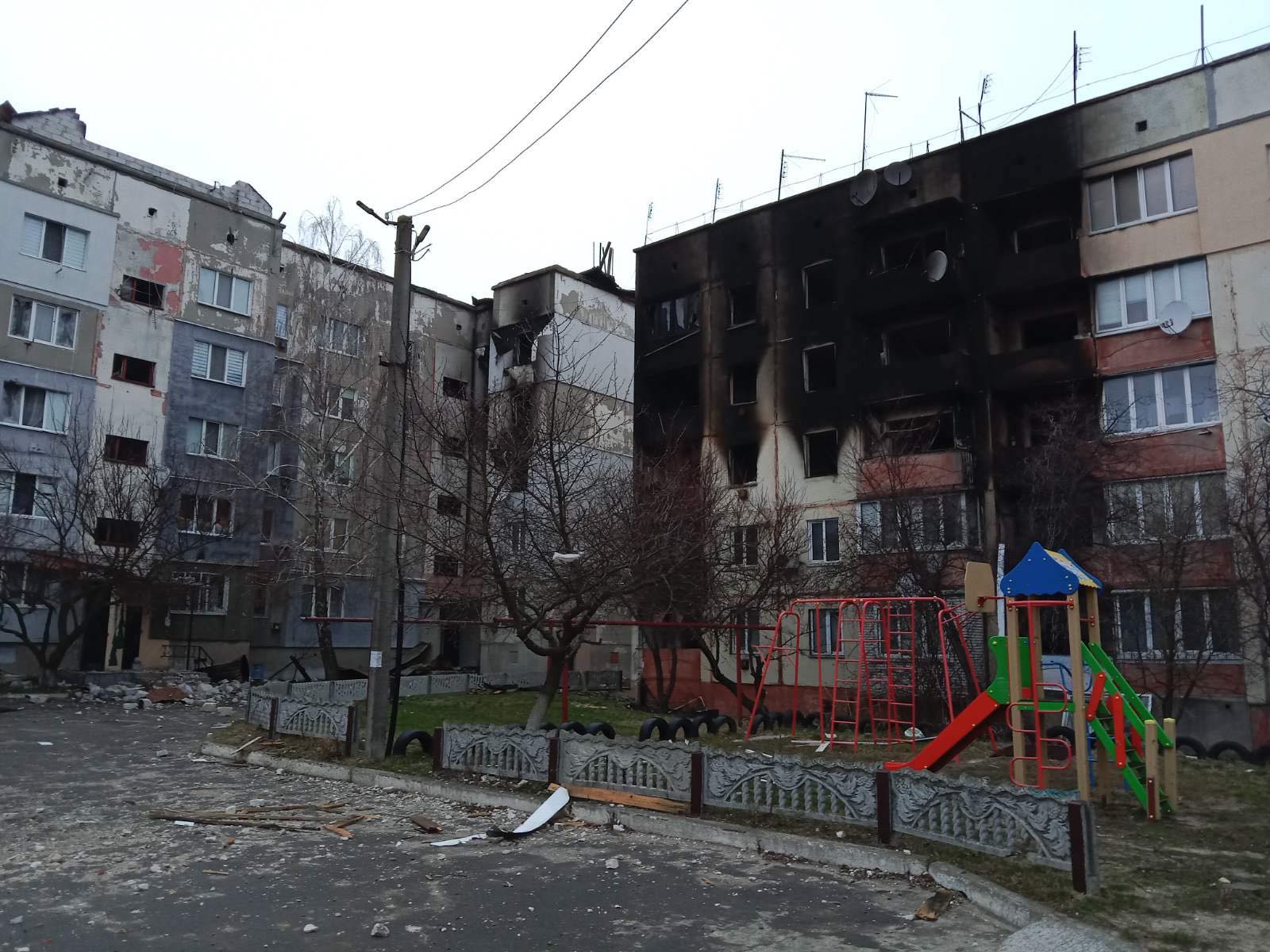
Then, on the Internet, I found all sorts of photographs in some news feed. It was terrible. I don’t know where they [Russians] got to, but next to the house that was destroyed, three or four burnt-out Urals [cars] of the Rushists [Ukranian name for Rissian troops — combines “Russian,” “racist,” and “fascist”] stood. I don’t know where they got to.
We had a cousin in the Territorial Defense; we talked on the phone, and he said we could return. “The orcs [Ukrainian name for Russian troops] have been driven out of here, and you can come.” My wife and I came to see what was there because we knew nothing. We didn’t know if we had somewhere to return to. We arrived, and the cousin showed us around. My grandmother had an apartment there; there was a direct hit and no apartment. It has now been rebuilt. We entered the garage: despite the shelling, everything survived, thank God.
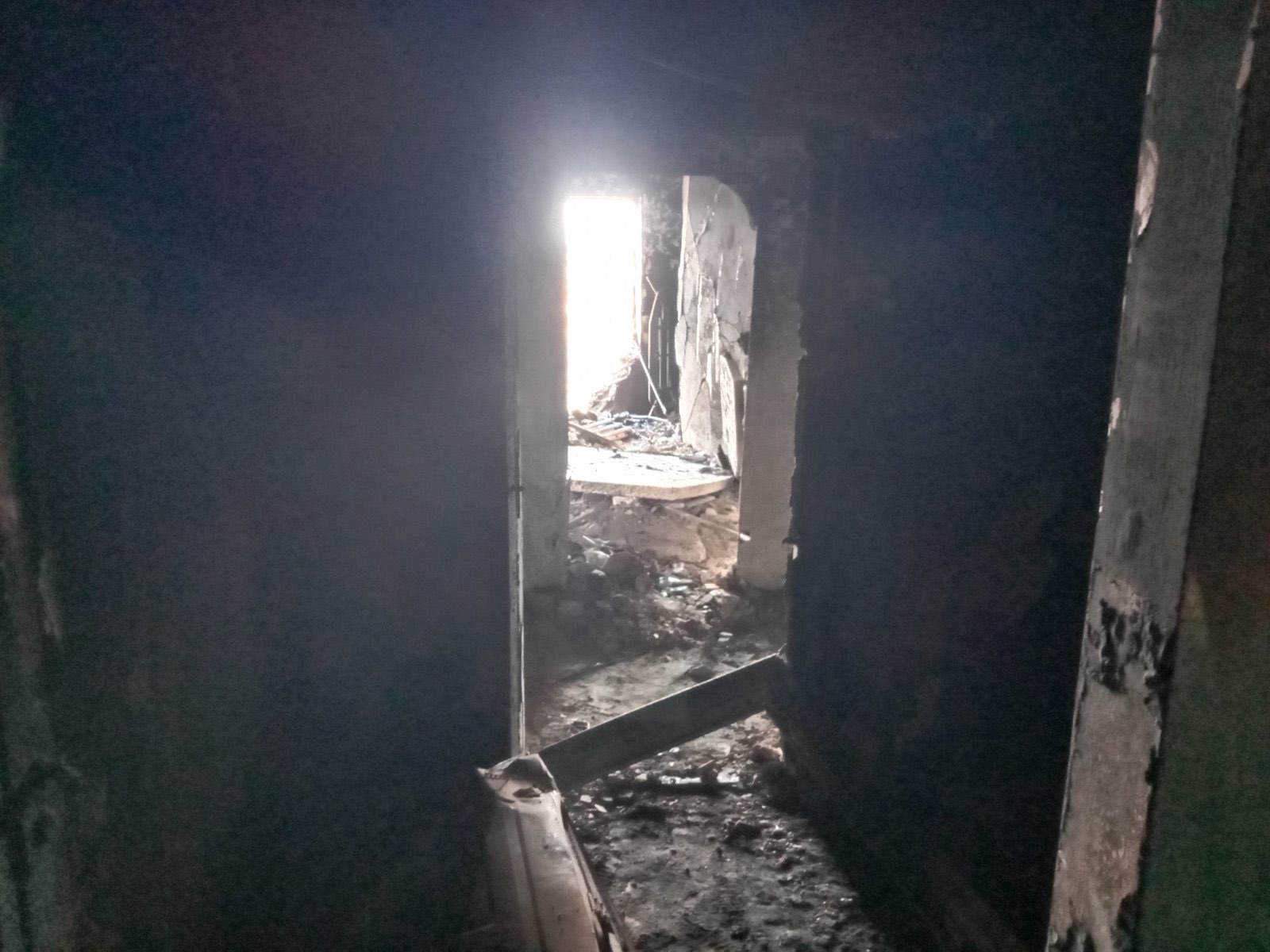
We came home. Visually, everything looked like something out of a horror movie. The weather was gray and cloudy; dogs ran around, attacking cats. There was slate lying around; glass and cars were broken. Words cannot express this. God forbid people would see this — a terrible sight. We opened the door carefully, in case there were tripwires there. We came in, and all the apartments along that wall were broken into, but these [shows] were no longer there — all the ceilings were lying on the first floor.
The Russians came from Andriivka, and most likely, there was a direct hit. This entrance burned out. Everything caught fire, no one turned off the gas, and the entrance burned out. Everyone’s entrance doors were smoldered. But the fire did not reach the apartment. Well, we arrived and saw that, in principle, there was somewhere to return. We returned, took our grandmother and mother-in-law, and said we would return. My mother-in-law lives in Andriivka, and her house was intact. So she and the grandmother went there, and we rented a house in Makariv while repairing the roof.
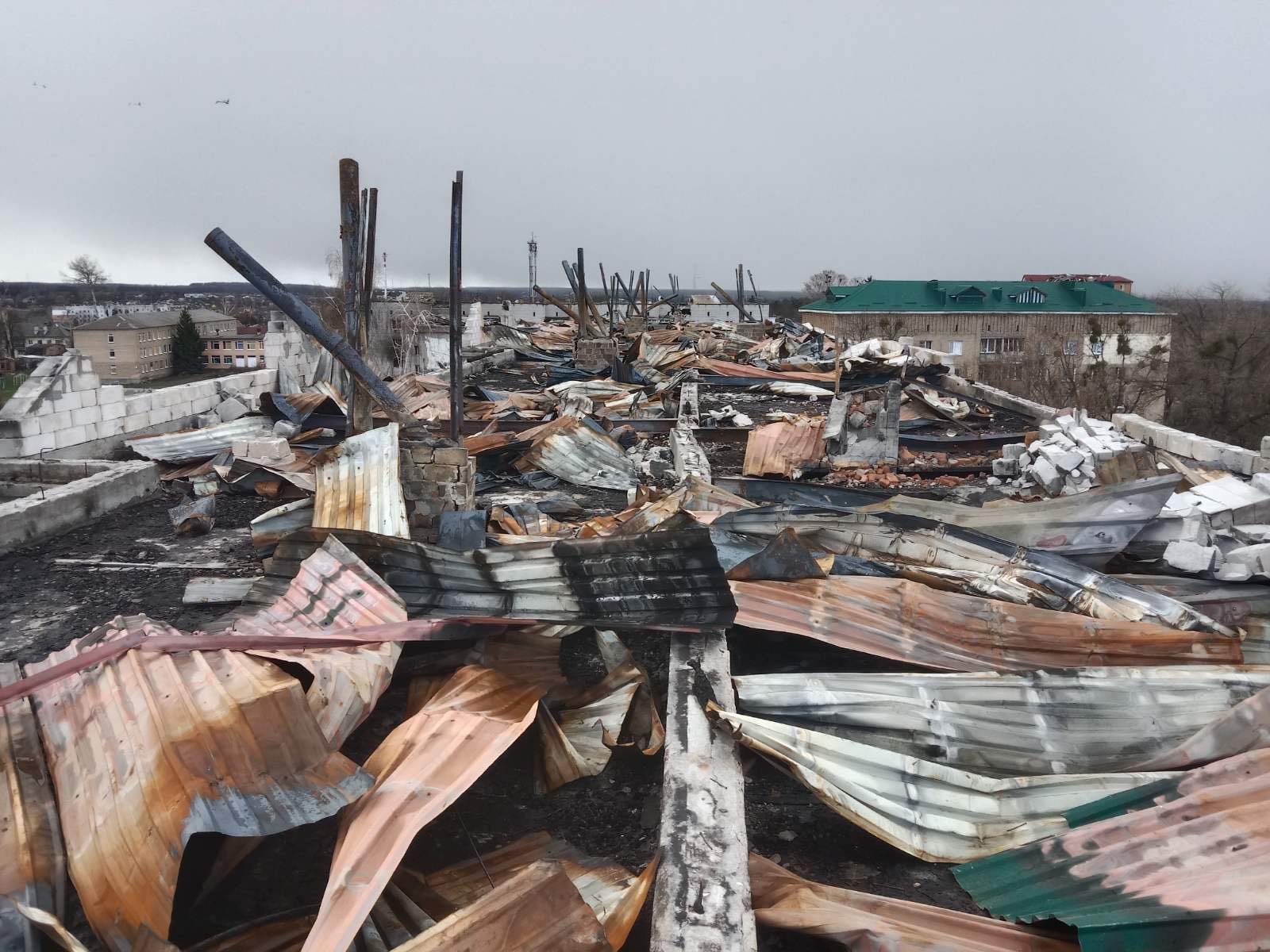
We cleared it first, covered it with plastic film, and bought the roofing felt. Thanks to my wife’s brother for helping me, but I had to finish everything else myself. It seems like the roof was patched up, and nothing was leaking. Then they told us to move out because they would cut off part of the entrance.
While the destroyed part of the house was dismantled, we rented an apartment again. We came here and visited, it was interesting. Then, we were allowed to return. We moved in, and the water was flowing through the ceiling. I spent on the roof all summer, but it started leaking again.
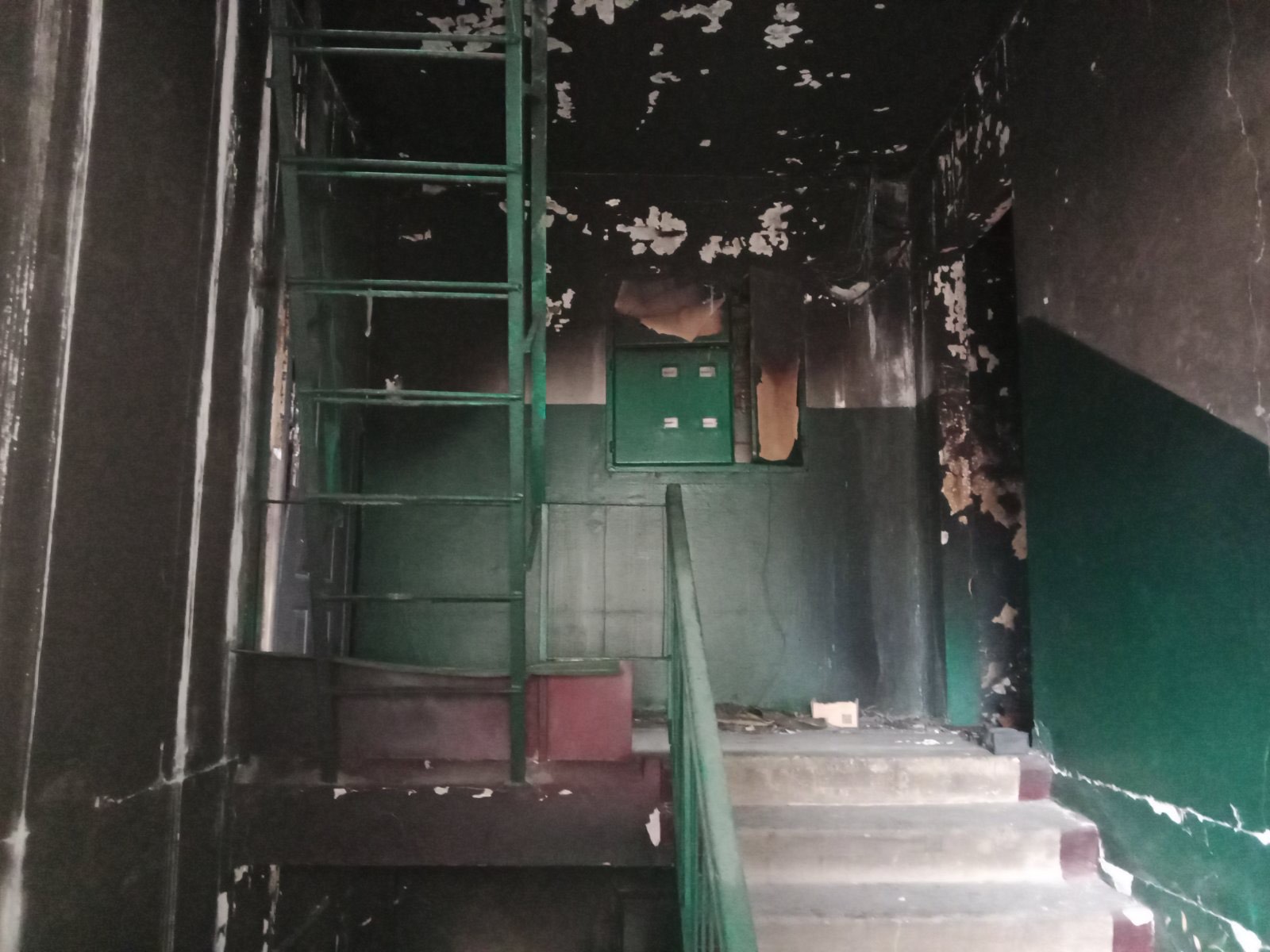
My wife became pregnant when we returned to Makariv to a rented apartment. She had to give birth, and we returned here. And then, the wife was taken to the maternity hospital for bed rest. I patched the roof again to prevent leaks into the apartment. And the entrance — I simply don’t have the strength to do it all by myself.
But I can only say one thing about the Russians. My mother is Russian, and after these events, we don’t talk at all. I speak with my father more or less, because my father is from Ukraine, but with my mother... It didn’t work out...
